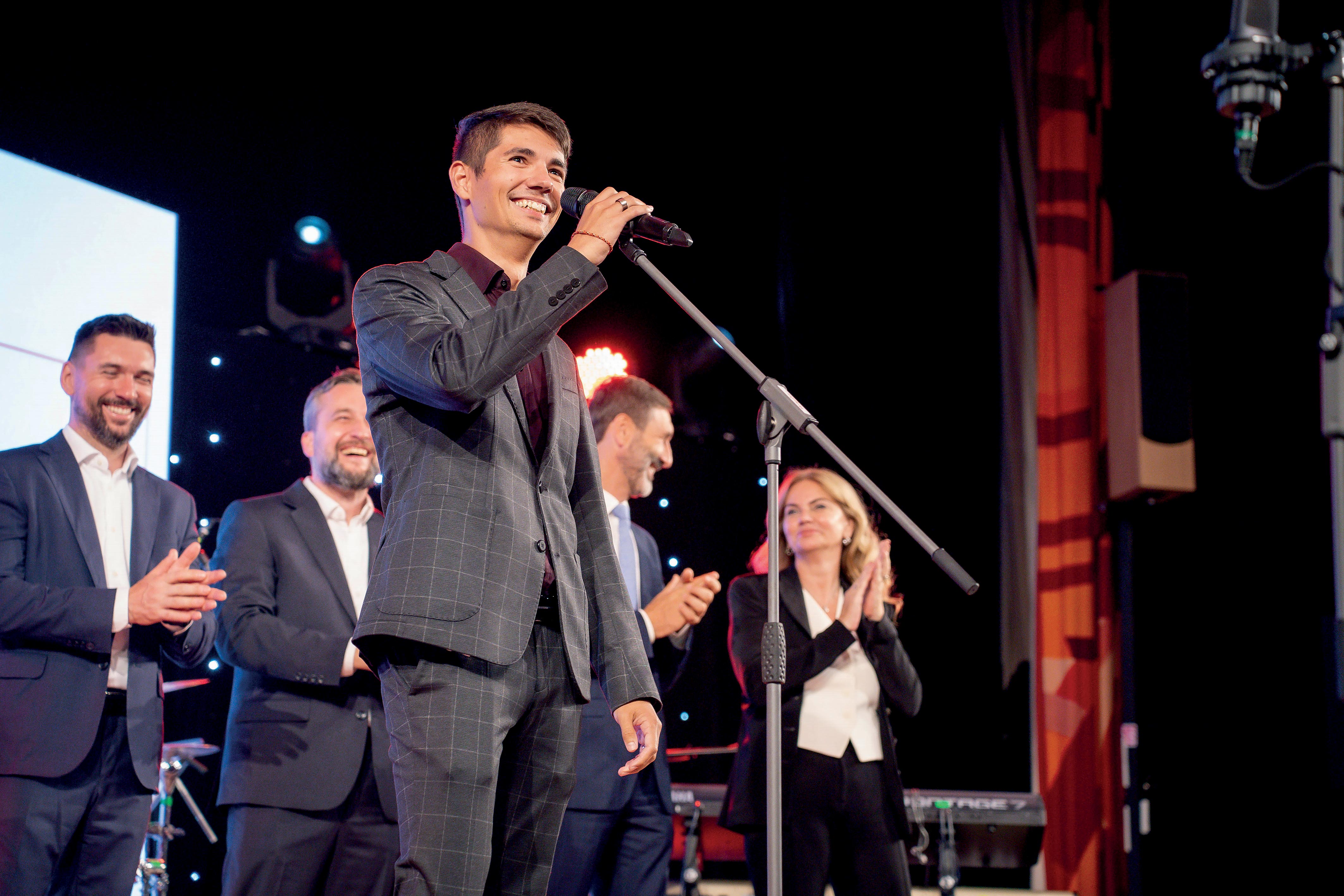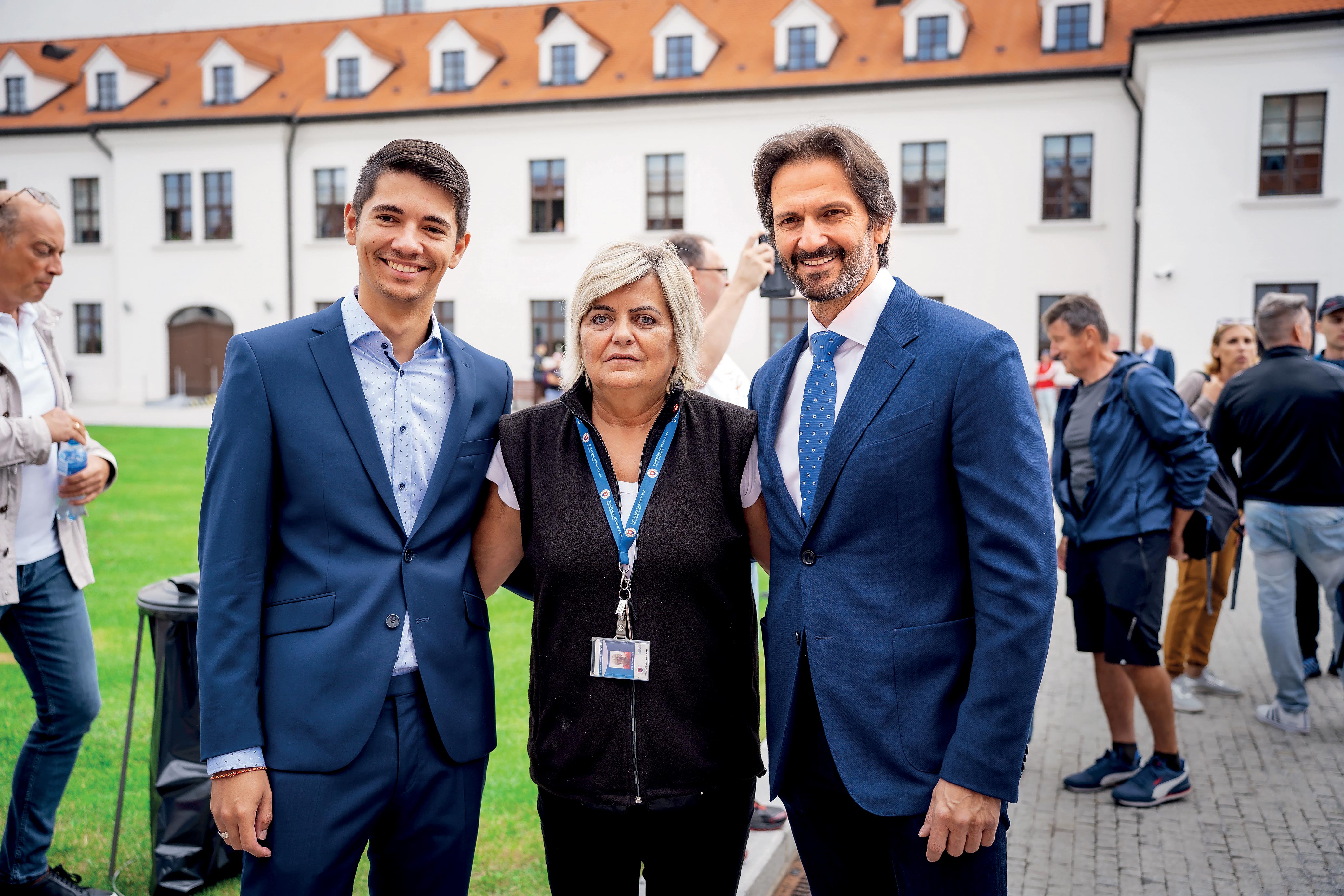He hadn't even turned thirty when he was appointed vice-chair of the SMER-SD party halfway through 2020. Today, Erik Kaliňák is three years older and has been elected a member of the Slovak National Council. He says his party's election results are a miracle. Politics runs in the family, his uncle is Robert Kaliňák – former minister of interior and freshly appointed minister of defense in the new government.
How do you feel about the campaign for this year's Slovak National Council election? Was it different in any way compared to previous ones?
We've been through a very difficult campaign. It was affected primarily by the decay cast on our society by Igor Matovič who, in an attempt to save himself, set the bar for the election campaign the lowest it's ever been. Having no vision for the future to offer the public, he resorted to attacking and disrupting other people's campaigns. The only thing that helped him survive in the end was the pre-election “corruption” as he promised “500 EUR for voting” in Roma settlements, which often garnered him up to 90 percent of their votes. On election day, we saw various incidents of deceived Romani asking for their promised 500 EUR upon leaving the election booths. I firmly believe that this non-democratic offense will not go unnoticed by the law enforcement. After the three years of chaos, aggression, and indignity it was put through, it was our priority to provide the Slovak public with a strong and stable government that would bring peace to society and restore security to the people. Be it political or social.
According to various pundits, SMER-SD took some of the votes away from the extremist party Republika after becoming more radicalized in its messaging. Do you agree?
I reject any and all narratives claiming the “radicalization” of Smer. That kind of talk is perpetuated exclusively by politicians, journalists, and non-governmental activists who hold one unassailable opinion and refuse to tolerate any other independent opinions, which they immediately choose to label as radical or worthy of censorship. We stand against censorship, we are proponents of free speech and the right to hold a different opinion, and yes, this side of our platform might have attracted some of Republika's voter base towards the end of the election as they were rightfully afraid of divergent opinions on the war in Ukraine, compulsory vaccinations, and gender ideology being criminalized. I firmly believe that we will not fail these voters either as they join the Smer party.
Similar to Andrej Babiš in Czechia, Robert Fico seems to be a mobilizing factor for the voters. What do you think is behind this role of his? Why does he divide voters and society in general?
It is not Robert Fico who divides society. It is, in fact, the liberal and progressive media, politicians, and non-governmental organizations who started dividing voters into democratic and non-democratic, moral and immoral, pro-Ukraine and pro-Russia, sensible and "malcontents", or vaccinated and unvaccinated. It has been very clear since our party's first press conference after the election that we came to placate the public and also unify it as far as possible. On the other hand, certain media outlets and Progressive Slovakia are the ones spreading hate and dividing society.

At a pre-election rally in Považská Bystrica
Is it possible to characterize what kind of voters Slovak people are?
There is no one type of Slovak voter, as there is no one type of Slovak person. We focused on those who follow politics and are honest listeners, so to speak. The brunt of our attention was directed at them, and we spent three years actively communicating with them each and every day about each and every topic. This type of voter, who is transversal in terms of gender, age, and education level, formed the solid base and support in our "final sprint" where they were one of the factors that helped us attract even the more superficial voters who could essentially be said to have taken an interest in politics two weeks before the election, which is of course their undeniable right, however.
SMER-SD won with a five percent lead over the Progressive Slovakia movement. Did the election results go as you expected?
Considering the power play we stood against, be it in the form of the media, NGOs, foreign influence, Lipšic's special prosecution office, Hamran's NAKA, or all the other political parties spreading the most horrendous lies imaginable about us, I feel that our election result is a miracle. But primarily it is proof that the Slovak people have their own minds and are able to tell apart propaganda from legitimate criticism. There are certainly fair points for which Smer can be criticized, but our opponents chose to go with boundless fabrications and fearmongering instead.
What will be the first steps of the newly formed government?
We see four urgent issues that we plan to work on from the very first session. First is the fight against illegal migration – reimplementing checks on the border with Hungary, detaining migrants who managed to illegally cross our borders, and subsequently readmitting them. Second is the subsidization of rising mortgage rates – we are seeing rapid growth in mortgage payments, which is unsustainable for many Slovaks. Taking out a mortgage has literally become an unattainable form of luxury for young people, which has led to Slovakia falling down the rankings of household overcrowding. Third will be kickstarting an efficient way to fight inflation and poverty – we used legislative processes to order the caretaker government to regulate the price of basic foodstuffs by capping prices and margins. They refused to fulfill the order, and so now it's our turn to take it up. And the fourth issue is ensuring that there are stable energy prices throughout the next year for households as well as the industry.

Erik Kaliňák (left) with his uncle, ex-Minister of Interior, and new Minister of Defence Robert Kaliňák. Between them is Eva Zbihlejová from the Office of the Slovak NC
This is your first time winning an election. Are you excited about your new role?
It will be a new life experience for me and I am acutely aware of its import. But, I am ready to lead an ideological battle with those political powers who are intent on systematically stripping Slovakia of its sovereignty or its national, historical, and cultural identity. Progressive Slovakia brings into politics an ideology that the vast majority of Slovakia disagrees with. I will do my utmost in the Parliament to ensure that Slovakia remains a free country without censorship where people can express their opinions without fear of criminalization, a country of men and women, fathers and mothers, not parents number 1 and 2, or even 3, 4, and 5.
Your Facebook page includes the slogan, "Family, Tradition, Slovakia" – does it define your own priorities or the priorities of your party?
I'm more inclined to use the word values; values that clearly define what is important for me and also, I believe, for my fellow SMER-SSD party members.
SMER-SSD or SMER-SD, what's the right way to say it?
Strictly speaking, SMER-SD, but it's a minor technicality, which we will certainly fix one day when we have nothing more important to do. [laughs]
CV BOX
Erik Kaliňák (born September 9, 1991, in Bratislava) is a newly elected member of the National Council of the Slovak Republic.
He graduated in philosophy from the Comenius University Bratislava Faculty of Philosophy.
He started in the SMER-SD party in 2018 as a creative manager. He worked his way up from managing social media accounts through creating communications content all the way to political functions. He has held the position of the party's vice-chair since July 2021.
In 2020, he ran for the Slovak NC for the first time, sitting in 150th place on the ticket at the time. He only got elected in this year's election, in which he ran from 6th place and gained over 145 thousand preferential votes.
Kaliňák is married and lives in Bratislava.